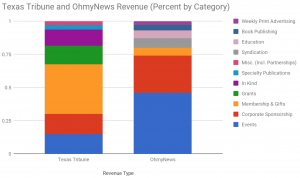Newsletter: Problem – Solution Edition
ø
Two pieces caught my attention this week: one sets up the core problem of Facebook in society today. The other sets out a (surprisingly) simple and well-thought-out way to solve it. I wrote about it on Working Paper in more detail, and started a discussion of what it might mean for news organizations, too.
While the two authors didn’t intend to speak to one another directly, they are a part of the same conversation.
Ian Bogost reviews the history of consumer data brokerage, and how we got to the modern advertising system. He describes the core problem today (accurately, in my view), that:
“The real difference between the old and the new ages of data-intelligence-driven consumer marketing, and the invasion of privacy they entail, is that lots of people are finally aware that it is taking place.”
In a fit of link-clicking on Lawfare I ended up at a 2016 Atlantic article by Jack Balkin and Jonathan Zittrain, arguing that a simple legal mechanism to regulate tech companies might be the idea of “information fiduciaries,” or companies that are shielded from some liability if they agree to act in our interest.
Historical context for our problem and an elegant update to a historical idea for the solution.
Nice.
Hope you had a great weekend,
Andrew
P.S. Media Mail worked — the library arrived.
